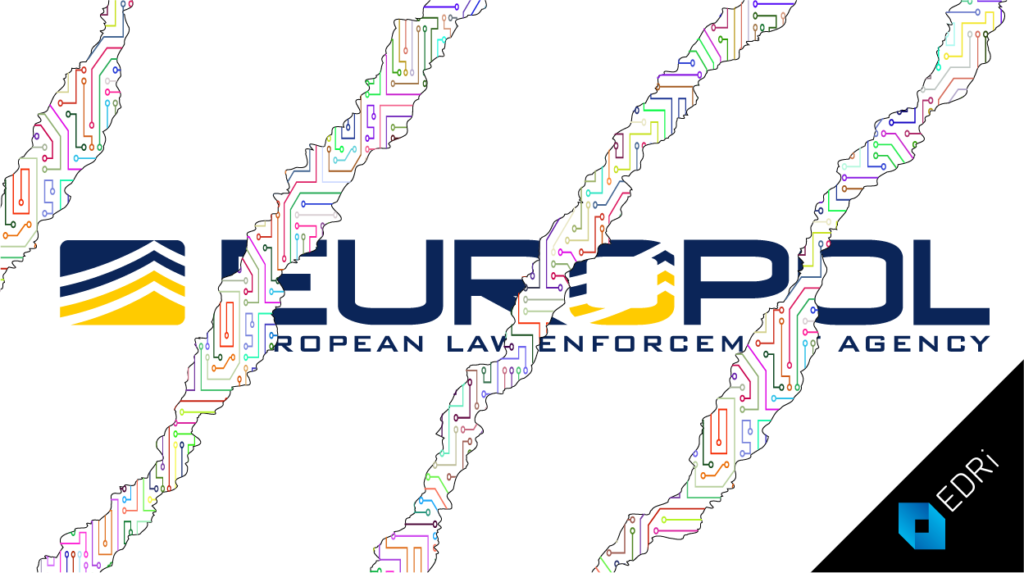Europol: Non-accountable cooperation with IT companies could go further
There is an ongoing mantra among law enforcement authorities in Europe according to which private companies are indispensable partners in the fight against “cyber-enabled” crimes as they are often in possession of personal data relevant for law enforcement operations. For that reason, police authorities increasingly attempt to lay hands on data held by companies – sometimes in disregard to the safeguards imposed by long-standing judicial cooperation mechanisms.
There is an ongoing mantra among law enforcement authorities in Europe according to which private companies are indispensable partners in the fight against “cyber-enabled” crimes as they are often in possession of personal data relevant for law enforcement operations. For that reason, police authorities increasingly attempt to lay hands on data held by companies – sometimes in disregard to the safeguards imposed by long-standing judicial cooperation mechanisms. Several initiatives at European Union (EU) level, like the proposed regulation on European Production and Preservation Orders for electronic evidence in criminal matters (so called “e-evidence” Regulation), seek to “facilitate” that access to personal data by national law enforcement authorities. Now it’s Europol’s turn.

The Europol Regulation entered into force in 2017, authorising the European Police Cooperation Agency (Europol) to “receive” (but not directly request) personal data from private parties like Facebook and Twitter directly. The goal was to enable Europol to gather personal data, feed it into its databases and support Member States in their criminal investigations. The Commission was supposed to specifically evaluate this practice of reception and transfer of personal data with private companies after two years of implementation (in May 2019). However, there is no public information on whether the Commission actually conducted such evaluation, what were its modalities as well as its results.
Regardless of the absence of this assessment’s results and of a fully-fledged evaluation of Europol’s mandate, the Commission and the Council consider the current legal framework as too limiting and therefore decided to revise it. The legislative proposal for a new Europol Regulation is planned to be released at the end of this year.
One of the main policy option foreseen is to lift the ban on Europol’s ability to proactively request data from private companies or query databases managed by private parties (e.g. WHOIS). However, disclosures by private actors would remain “voluntary”. Just as the EU Internet Referral Unit operates without any procedural safeguards or strong judicial oversight, this extension of Europol’s executive powers would barely comply with the EU Charter of Fundamental Rights – that requires that restrictions of fundamental rights (on the right to privacy in this case) must be necessary, proportionate and “provided for by law” (rather than on ad hoc “cooperation” arrangements).
This is why, in light of the Commission’s consultation call, EDRi shared the following remarks:
- EDRi recommends to first carry out a full evaluation of the 2016 Europol Regulation, before expanding the agency’s powers, in order to base the revision of its mandate on proper evidence;
- EDRi opposes the Commission’s proposal to expand Europol’s powers in the field of data exchange with private parties as it goes beyond Europol’s legal basis (Article 88(2));
- The extension of Europol’s mandate to request personal data from private parties promotes the voluntary disclosure of personal data by online service providers which goes against the EU Charter of Fundamental Rights and national and European procedural safeguards;
- The procedure by which Europol accesses EU databases should be reviewed and include the involvement of an independent judicial authority;
- The Europol Regulation should grant the Joint Parliamentary Scrutiny Group with real oversight powers.
Read our full contribution to the consultation here.
Read more:
Europol: Non-transparent cooperation with IT companies (18.05.16)
https://edri.org/europol-non-transparent-cooperation-with-it-companies/
Europol: Delete criminals’ data, but keep watch on the innocent (27.03.18)
https://edri.org/europol-delete-criminals-data-but-keep-watch-on-the-innocent/
Oversight of the new Europol regulation likely to remain superficial (12.07.16)
https://edri.org/europol-delete-criminals-data-but-keep-watch-on-the-innocent/
(Contribution by Chloé Berthélémy, EDRi policy advisor)
